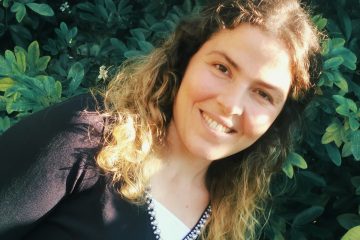When threats against you and your family force you to flee your home in search of safety, it can be hard to readjust – and even harder to find meaningful employment, as Sobia from Pakistan was to discover. But thanks to Prisoners of Conscience and our bursary grants scheme, she was able to turn her life around
Sobia* is an Ahmadiyya Muslim from Pakistan. Ahmadiyya Muslims have long faced religious persecution around the world. Although it is a movement that emerged from the Sunni tradition of Islam and is one which believes in all the five pillars and articles of faith required of Muslims, Ahmadis are considered non-Muslims by many mainstream Muslims, due to their belief that Mirza Ghulam Ahmad, the founder of the movement, is the promised Mahdi and Messiah. As a result, many Ahmadis face daily discrimination and danger.
In Pakistan, for example, hundreds of Ahmadis have been threatened, injured and even killed, and countless others deprived of the right to practice their religion, work in government jobs or study at university.
Sobia knows exactly what it feels like to be persecuted in this way.
“I was subjected to a clear discrimination
in every walk of life. Whether it’s getting into an educational institute or
workplace, doing business or establishing a social life, our religious beliefs
made it harder to progress. There are many extremist Islamic groups who not
only spread hatred but also motivate other Muslims to take extreme actions,”
she explains.
“Despite suffering a complete social boycott and extreme hatred from the fellow
students I was able to graduate as an architect from the University of
Engineering and Technology in Lahore and started my career as a lecturer and
researcher at the University of Punjab. However, after just a couple of years
in service I received serious death threats meaning I had to resign.”
Soon after, there was an attack on her husband’s business and fearing for their safety, the family made the difficult decision to escape the country. They made their way to the UK where they were granted refugee status.
Under UK law, when a person is given refugee status, they are granted leave to remain in the UK for five years, after which point, they can apply for indefinite leave to remain. Refugees also have permission to find work – in any profession and at any skill level.
However, as Sobia was to discover, the challenges of adjusting to a different culture, language and way of life can make it difficult to find employment of any kind, least of all in the field in which they are qualified.
“As soon as we reached the United Kingdom, the sense of protection and security for our lives started to prevail. However, building our lives as a refugee from scratch was full of barriers. Whether it’s updating your studies, seeking employment or taking proper guidance, there is a lack of support and it’s hard to access the right forum,” she says.
For Sobia, life began to change when she was introduced to Prisoners of Conscience, which she now describes as her “lifeline”. Through our bursary scheme, which provides funding to persecuted human rights defenders so they can requalify and find skills-related employment, she was able to secure funding to study an MSc in Urban Design and International Planning at the University of Manchester.
“Prisoners of Conscience is a lifeline for refugees and really is helping them in re-shaping their lives. Without my bursary grant, it would have been impossible to complete my course. I was not only able to purchase all the necessary equipment for my studies with this money but also managed the cost of childcare and daily commute to Manchester”, she explains.
Sobia was able to complete her MSc “Urban design and International Planning” with an overall high merit and distinction for dissertation research. She was also awarded a special certificate to commend her research work. In addition, her degree is fully accredited with the Royal Town Planning Institute meaning she is now able to access the job market in the UK.
“I would have not imagined this success without Prisoners of Conscience and its supporters. Those who make generous donations are helping people like me transform their lives in this country,” she enthuses.
Sobia is not the only prisoner of conscience now living in the UK who has been able to rebuild their career as a result of our bursary scheme. Since we were founded, some 185 bursaries have been awarded, totaling £860,000. Of those bursary grantees with whom we are still in touch, 83% are in paid employment and of those, 62% are employed in sectors related to their qualifications.
At our annual reception on Friday 15 November, we will be celebrating the achievements of all our students, including Sobia. We will also be taking the opportunity to thank our generous supporters, without whom this work would not be possible.
For 2019/20, our bursary fund is likely to be upwards of £50,000 for academic fees, providing a new group of people who have faced persecution and human rights violations with a chance to build a new life.
If you would like to support our work, you can do so here. Thank you.
* names have been changed to protect the individual
Photo by mentatdgt from Pexels


